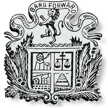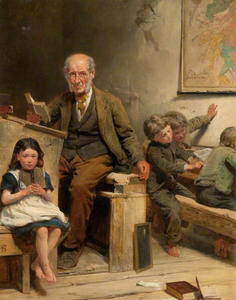

|
Johnstone History Museum
Johnstone History Society • Scotland
| |||||||
|
| |||||||
Welcome in!
The Museum is open Wednesdays, Fridays and Saturdays, 1030am till 4pm. Welcome!
Johnstone History Museum is in Johnstone, Scotland. It contains local industrial and social artefacts and memorabilia. For opening times and directions follow the Schedule and Direction buttons on this page. [Overview] [Special Exhibits]
From our members...Members may contribute and comment throughout the site.
Login required to interact with member comments. Robyn Nicols nee Johnstone 08-Dec-2025 Hi, I am in New Zealand and my maiden name was Johnstone. I am wondering where the town of Johnstone chose it's name from as the Johnstone Clan was on the border of Scotland and England. Any... Karen Worrall 19-Jul-2025 I needed to add there is family lore that they worked around the castle camp and the airfield. If there are any members who can help with my research it would be greatly appreciated - many thanks. Nancy Margaret Lafortune 03-Jan-2025 Visiting in May from California related to John Houston and Janet Millar and Stevenson left for PEI hoping to get a guide to share the area history Rees Clark 02-Feb-2024 We've made it easier to donate to the museum. Both financial and volunteer support are very much appreciated. Just follow the helping hand. Or click LINK at the end of this post. johnstonehistory.org Research Preview
Principal Collections
Background, info & stories about meetings, events...
Weblog PreviewOur next meeting will take place on Tuesday 10th February when Paul Noble will give us another talk inspired by his adventures beneath the floorboards of his Glasgow home. This one is entitled "The life, loves and legacy of David McHaffie…..an ordinary Glasgow Merchant?". If you remember his first talk in October 2024, you will know that this is one not to... Continues...
The 2026 calendar is now on sale in the museum!
We have a limited number of calendars that we are have reduced to £2 to clear. We will be available at the talk on Tuesday night or they can be bought from the museum. We want to thank everyone who contributed photographs for this year’s calendar. We’re already planning next year’s edition, so if... Continues... We've added a new page and news category (Organization) about the Johnstone History Society itself. You'll find all you need to know, and perhaps a wee bit more, about the Society, its origiins, its people, and how you can participate. You will find a link below and in the News table of contents.
All this will be coordinated by Iain Murray, who hasna... Continues... With the 80th anniversary of VE day fast approaching I though this would be a good time to highlight an excellent article by Angela Gillespie which describes the celebrations that took place in Johnstone 80 years ago. You can access the original article from the research tab but I have taken the liberty of reprinting the text below.
VE Day The war in... Continues... Last week we had the pleasure of welcoming Mary & Dick Kelly to the museum. Mary’s great-great grandparents Robert and Margaret Cumnock had lived and worked in Johnstone at one of the cotton mills before emigrating to America. The 1841 Census shows Robert as a cotton spinner with an address listed as Hagg in Johnstone.
The family arrived in Boston in... Continues...  The town... Continues... Other Johnstone history friends have also created a Facebook page with running commentaries and personal stories. | |||||||
|
© 2026 Johnstone History Society
|